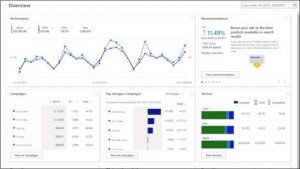In this age of sound bites and clickbait headlines, contributor Matt Umbro contends it’s more important than ever to dig deeper into what we’re told.

I’m a big fan of Twitter because it provides me with instantaneous information and commentary. It lets me see what’s trending while gaining quick insight. It’s everything I want in a social platform except for one troubling issue: Twitter lacks context.
It’s not just Twitter. Facebook, Instagram, Snapchat and other platforms all provide us with short, easily digestible pieces of information. We don’t have to take the time to read the content because the headline satisfies our need for information.
For as great as these social platforms are, they train us to favor brevity instead of allowing us to dig into the context of the information we consume. That can be a problem.
Claims lacking context lead to absolute positions where facts don’t matter. We see it in politics all the time, where one side clings to an argument, even if the argument is flawed and can be disproved. Since we only want the main points, the important details often go unmentioned. If I told you that your favorite restaurant was raising prices, you would probably be unhappy. However, if I told you that your favorite restaurant was raising prices due to increased supplier charges and a higher rent, you would at least understand the reasoning behind the decision.
As consumers of non-stop information, we need to seek further context. It goes without saying that we should question what we consume, but how can we be critical? Here are three simple ways you can seek context on a daily basis, which will help in your role as a marketer as well as in your life in general.
Seek more than sound bites
Quotes, whether they are stated orally or through the written word, are powerful. Quotes are what people remember from a speech, a publication, a news broadcast, and other media.
In many cases, quotes are a good way to sum up what was said. For example, during a news segment, you may hear a quote from a speech or see a graphic of the quote on a screen. For brevity’s sake, quotes give a quick summation, but they also allow the presenter to frame the narrative by selecting the quotes and not giving the context of the content.
Let’s look at another example from a theoretical marketing presentation. Let’s say the main point of the presenter’s content is that bounce rate is a meaningless metric.
When those who attended the presentation share their takeaways with their colleagues, they’re likely to say that the presenter thinks bounce rate is a meaningless metric and perhaps mention that it’s time-consuming to explain the why behind this statement.
Therefore, the headline is “bounce rate is a meaningless metric,” when, in reality, the context behind this statement is:
- Website design has changed over time, therefore fostering a new way to look at bounce rate.
- Bounce rate isn’t as important for campaign-specific landing pages where users either take an action or leave the site.
- Bounce rate is important to view in relation to average time spent on site.
As obvious as it may seem from this example, we tend to ignore the context because the original statement is brief and packs a punch.
Don’t take quotes as the absolute statement. When you hear a quote from a speech on a news broadcast, seek to read the entire speech for yourself. If your colleague mentions a presentation, ask for the link to it. It does require more effort, but being better informed is worth the time.
Determine the validity and intention of the source
Far too often, unsubstantiated claims are given attention because we don’t question the source. That source may be the person providing the information or the data itself. When I view a report that tells me “leads increased by 30 percent month over month” without further context, my immediate questions are:
- How is a lead defined?
- How many leads turned into legitimate opportunities?
- Did the number of legitimate opportunities increase month over month?
- How did performance compare with the same month last year?
Furthermore, sources tend to be biased. If I were the person writing the report analysis, I would frame it in a way that is positive and speaks more to the successes rather than the negatives.
I am not trying to mislead the person reading the analysis, but I want to highlight what’s working so the client is happy. Sources are inherently partial, even if they don’t believe they are. That’s why you should always question the agenda of the source.
Spot trends and patterns

In an ideal world, we would seek the context behind every piece of content we consume, but we don’t have enough time to do that. Instead, we can view information at a macro level.
For example, let’s say I’m looking to hire an SEO agency to improve my organic presence. Any agency is going to provide me with case studies and explain why its processes are better than others (a reminder to question the intention of the source), but what will my own research tell me?
To find other sources of information about the agency, I might look to sites like Glassdoor and LinkedIn. I’m not going to read every review of the agency, but I am going to see what the average satisfaction rating is. I’ll take a look at the LinkedIn company page to see what’s posted and get an idea of the background of the employees. I could go further in-depth if I desire, but getting this macro-level context satisfies my need for information while balancing my time.
Final thoughts
Though the notion of seeking context can seem daunting, it should be seen as a way of critical thinking. Context is the why behind the what and allows for a better understanding of what we consume. Without the need to seek context, we take information at face value and are guided by others’ interpretations instead of our own.
Opinions expressed in this article are those of the guest author and not necessarily Marketing Land. Staff authors are listed here.
Marketing Land – Internet Marketing News, Strategies & Tips
(89)








